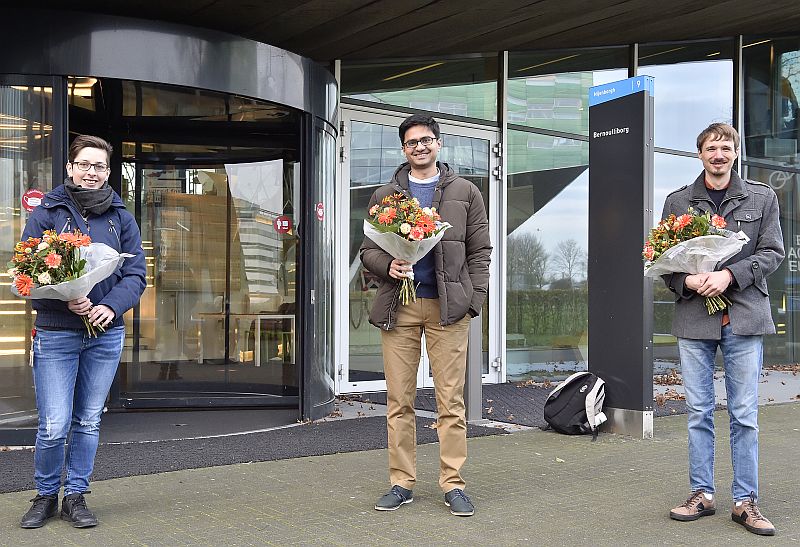Dr. Amar Kamat wins FSE’s Postdoc Prize
During a small ceremony in the Faculty Room on Friday December 11, the second FSE Postdoc Prize has been awarded to Dr. Amar Kamat of ENTEG for his outstanding achievements. Dr. Kamat has an excellent research profile, with a strong link to engineering and valorization. His research concerns the use of state-of-the-art 3D printing technology to fabricate complex-shaped structures inspired by nature.
The Postdoc Prize, which is an initiative of the FSE Postdoc Council, is an incentive to a successful postdoctoral researcher at the Faculty. It recognizes outstanding young researchers who have demonstrated excellent research and who are showing an exceptional promise for the future. Amar Kamat received a gratification of EUR 1,000. The other two final nominees were Dr. Nadja Simeth of the Stratingh Institute and Dr. Brian Hare of the Kapteyn Astronomical Institute . They received EUR 500 each.

| Last modified: | 04 August 2023 2.12 p.m. |
More news
-
29 April 2024
Tactile sensors
Every two weeks, UG Makers puts the spotlight on a researcher who has created something tangible, ranging from homemade measuring equipment for academic research to small or larger products that can change our daily lives. That is how UG...
-
29 April 2024
Behind the scenes: how UG and Hanze UAS students are jointly developing a Mars rover
This year the students of the Makercie team are participating in the physical edition of the European Rover Challenge in Poland. Read more about the team and the collaboration between the RUG and Hanze UAS here.
-
23 April 2024
Nine MSCA Doctoral Network grants for FSE researchers
Nine researchers of the Faculty of Science and Engineering have received a Horizon Europe Marie Sklodowska Curie Doctoral Network grant.
